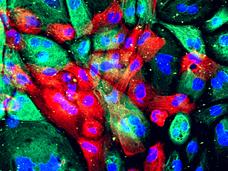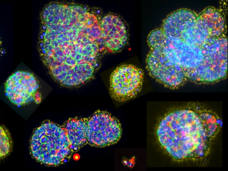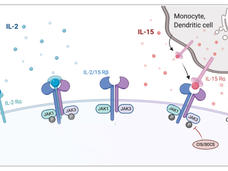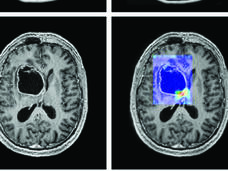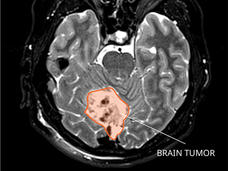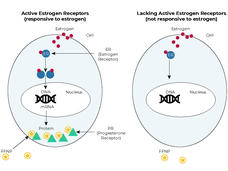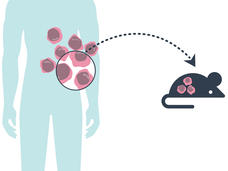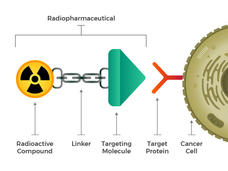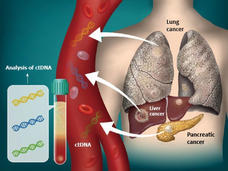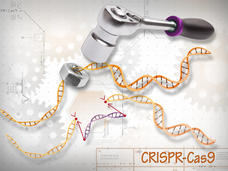Technology - Cancer Currents Blog
News and commentaries on technology used to conduct cancer research, deliver cancer treatment, improve patient care, and screen for cancer, as well as other topics.
-
Is a Genomic Test Better at Finding Aggressive Prostate Cancer?
The Decipher genomic test found high-risk prostate cancer even when conventional tests said the tumors were lower risk. This discrepancy appeared to happen more frequently for African-American men.
-
New Cancer Model Shows Promise in Predicting If Treatment Will Shrink Tumors
A research team hopes to offer oncologists a new tool to guide treatment choices for their patients. In a small study, a tumor model called micro-organospheres accurately predicted whether patients would respond to their chemotherapy treatment.
-
Screening for Many Cancers with One Test: Uncertainty Abounds
Progress has been made on developing noninvasive tests that may be able to find many cancers early. But, as NCI’s Dr. Phil Castle explains, there’s still much to learn about these multi-cancer early detection tests before they become widely used.
-
Implanted “Drug Factories” Deliver Cancer Treatment Directly to Tumors
Researchers have developed tiny “drug factories” that produce an immune-boosting molecule and can be implanted near tumors. The pinhead-sized beads eliminated tumors in mice with ovarian and colorectal cancer and will soon be tested in human studies.
-
Can Artificial Intelligence Help See Cancer in New, and Better, Ways?
Researchers have been developing artificial intelligence (AI) tools that could make cancer imaging faster, more accurate, and more informative. But there are also questions about whether these tools are ready for doctors’ offices, whether they will actually help people, and whether that benefit will reach all—or only some—patients.
-
Telehealth-Based Cancer Care Surged during COVID. Will It Continue?
Experts say studies are needed on how to best transition telehealth from a temporary solution during the pandemic to a permanent part of cancer care that’s accessible to all who need it.
-
Experimental Medulloblastoma Treatment Gets a Boost with Nanoparticles
A nanoparticle coating may help cancer drugs reach medulloblastoma tumors in the brain and make the treatment less toxic. Mice treated with nanoparticles containing palbociclib (Ibrance) and sapanisertib lived substantially longer than those treated with either drug alone.
-
Can mRNA Vaccines Help Treat Cancer?
The success of mRNA vaccines for COVID-19 could help accelerate research on using mRNA vaccine technology to treat cancer, including the development of personalized cancer vaccines.
-
Test Detects Early Signs of Remaining Cancer in Kids Treated for Medulloblastoma
A new test could potentially be used to identify children treated for medulloblastoma who are at high risk of their cancer returning. The test detects evidence of remaining cancer in DNA shed from medulloblastoma tumor cells into cerebrospinal fluid.
-
Studies Delve Deep into the Protein Machinery of Cancer Cells
A research team has identified common interactions between cancer-related proteins in cancer cells. They also created a map of how these protein complexes function in those cells and identified a promising treatment target for head and neck cancer.
-
Whole-Genome Sequencing Could Help Guide AML Treatment
For people with acute myeloid leukemia and related cancers, a new study shows whole-genome sequencing could replace a series of conventional tests used to help guide decisions about treatment.
-
Researchers Create Modified Antibodies to Target RAS and p53 in Cancer
Researchers have developed synthetic antibodies, called diabodies, that block the activity of two of the most notorious cancer-related proteins, RAS and p53. In experiments in mice, the synthetic antibodies shrank tumors with these mutated proteins.
-
Imaging Test Could Help Guide Breast Cancer Treatment Decisions
For some people with ER-positive breast cancer, a new imaging test may help guide decisions about receiving hormone therapy, according to a new study. The test can show whether estrogen receptors in tumors are active and responsive to estrogen.
-
PDX Mouse Models Are Reliable Stand-Ins for Human Tumors, Study Finds
A large study from an international group of researchers provides reassurance that cancer models, known as PDX mice, largely retain the genetics of the human tumors from which they were created. PDX mice are increasingly used in cancer research.
-
Nanoparticle Trains Immune Cells to Attack Cancer
Researchers have developed a nanoparticle that trains immune cells to attack cancer. According to the NCI-funded study, the nanoparticle slowed the growth of melanoma in mice and was more effective when combined with an immune checkpoint inhibitor.
-
People with Cancer Say Access to Their Clinical Notes Is Valuable
People with cancer find significant value in having access to electronic clinical notes from their doctor visits, a new study shows. Expanded access to these “open notes” will soon be required under the 21st Century Cures Act.
-
For Childhood Eye Cancer, Researchers Investigating “Packaged” CAR T Cells
For children with the eye cancer retinoblastoma, researchers are studying a CAR T-cell therapy in which the engineered immune cells are packaged in a biodegradable material called a hydrogel and then injected directly into tumors.
-
Radiopharmaceuticals: Radiation Therapy Enters the Molecular Age
Researchers are developing a new class of cancer drugs called radiopharmaceuticals, which deliver radiation therapy directly and specifically to cancer cells. This Cancer Currents story explores the research on these emerging therapies.
-
FDA Approves Blood Tests That Can Help Guide Cancer Treatment
FDA has recently approved two blood tests, known as liquid biopsies, that gather genetic information to help inform treatment decisions for people with cancer. This Cancer Currents story explores how the tests are used and who can get the tests.
-
How CRISPR Is Changing Cancer Research and Treatment
The gene-editing tool CRISPR is changing the way scientists study cancer, and may change how cancer is treated. This in-depth blog post describes how this revolutionary technology is being used to better understand cancer and create new treatments.
